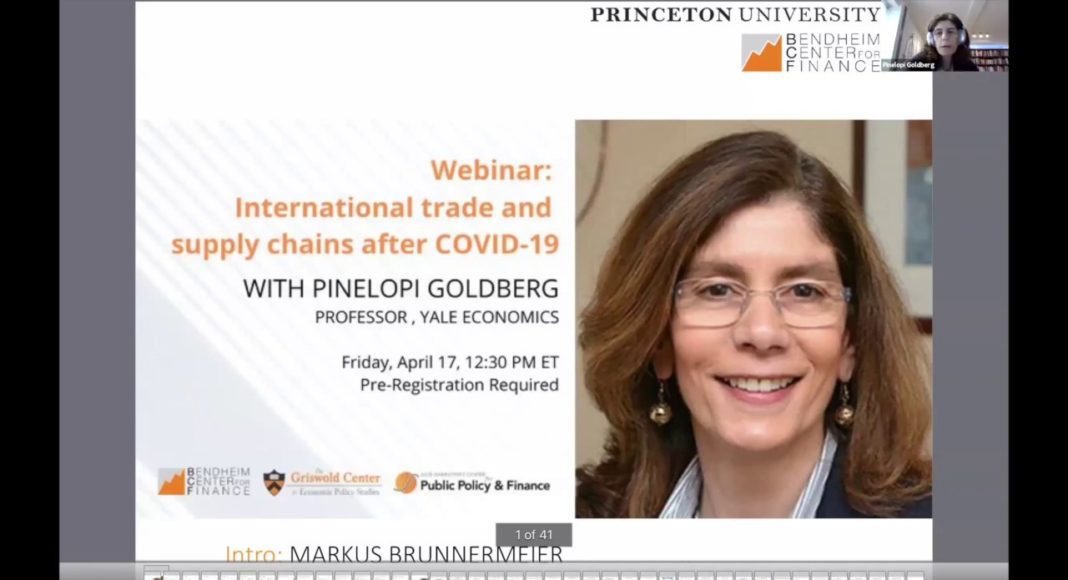Princeton professor Markus Brunnermeier and Yale professor Penny Goldberg, former chief economist of the World Bank, discuss the impact of Covid-19 on international trade and supply chains. “The most serious consequence of this crisis is that it could change our attitude toward trade and migrations. But an increase in domestic production by itself provides no guarantee that a crisis can be managed properly,” Goldberg argues.
On Friday, April 17, Penny Goldberg joined Princeton’s Bendheim Center for Finance for a seminar on how Covid-19 might impact international trade and supply chains. Goldberg is a Professor of Economics at Yale University and a former Chief Economist at the World Bank. The event began with a brief introduction by Markus Brunnermeier, Director of Princeton’s Bendheim Center for Finance.
|
“Pandemic management raises a clear moral hazard problem: suppose that some countries have taken steps to prepare and they have some reserves and then, during the pandemic, they’re asked to send their supplies to countries that were less well prepared. That would seem unacceptable to many people, so I think global coordination is needed but it has to happen before the crisis. So the key here is not allocation per se but it is building resilience.” Penny Goldberg |
 Pinelopi (Penny) Koujianou Goldberg is the Elihu Professor of Economics at Yale University. She is currently on public service leave from Yale, as she was acting as the Chief Economist of the World Bank Group between November 2018 and March 2020.
Pinelopi (Penny) Koujianou Goldberg is the Elihu Professor of Economics at Yale University. She is currently on public service leave from Yale, as she was acting as the Chief Economist of the World Bank Group between November 2018 and March 2020.
Goldberg is President elect of the Econometric Society (for 2021) and has previously served as Vice-President of the American Economic Association. From 2011-2017 she was Editor-in-Chief of the American Economic Review.
She is a member of both the National Academy of Sciences and the American Academy of Arts and Sciences, recipient of Guggenheim Memorial Foundation and Sloan Research Fellowships, and recipient of the Bodossaki Prize in Social Sciences.
She is also a research associate at the National Bureau of Economics Research (NBER), Distinguished Fellow of the Centre for Economic Policy Research (CEPR), and board member of the Bureau of Research and Economic Analysis of Development (BREAD).
ProMarket is dedicated to discussing how competition tends to be subverted by special interests. The posts represent the opinions of their writers, not necessarily those of the University of Chicago, the Booth School of Business, or its faculty. For more information, please visit ProMarket Blog Policy.






